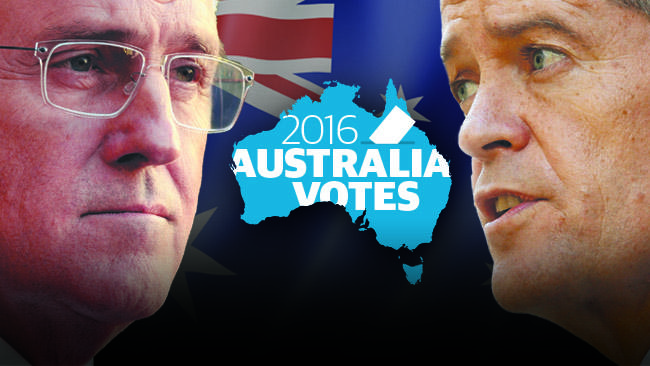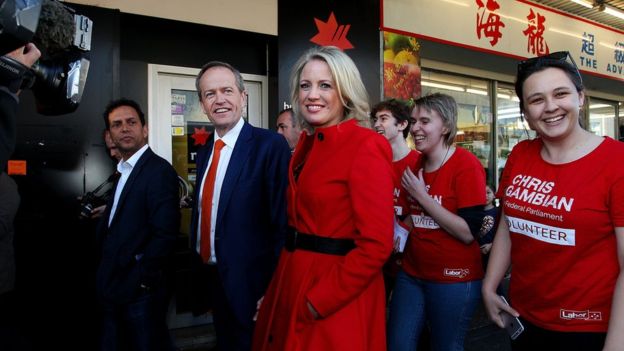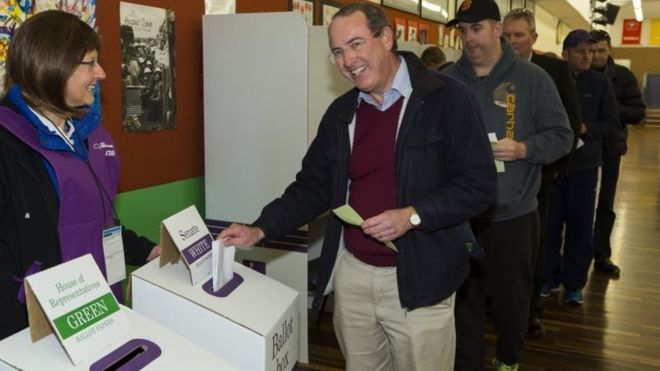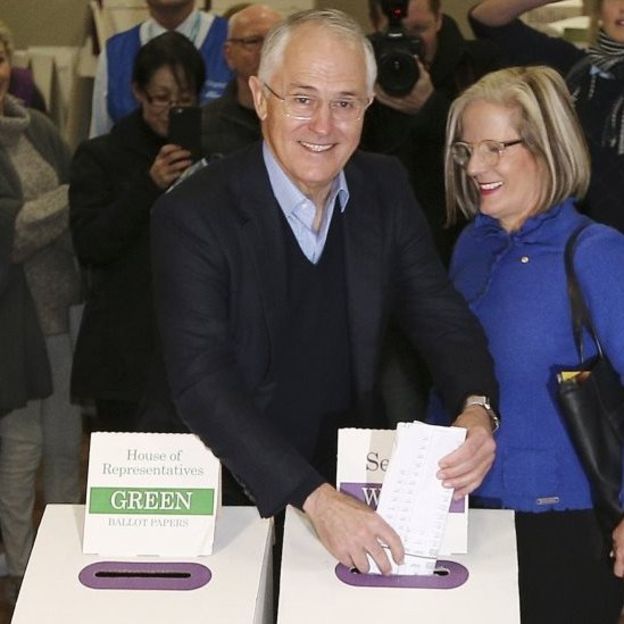Australia votes in federal election

Australians have begun voting in the country's federal election, where the conservative coalition government is widely expected to hold power.
The prime minister and opposition leader delivered their final pitches to voters on Friday after a marathon eight-week campaign.
The UK's decision to leave the EU appears to have benefitted Prime Minister Malcolm Turnbull.
But Labor Party leader Bill Shorten said he still intended to win.
Mr Shorten is already answering questions about his leadership in the event of a loss, with frontbencher Anthony Albanese reportedly keen to challenge.
Nearly 15.5 million people are casting their ballots across Australia, where voting is compulsory.
During the campaign, the government and Labor have sparred over the economy, healthcare, immigration and same-sex marriage.
While the government is widely expected to retain power, it is also expected to lose many seats and tight polls indicate a high chance of a hung parliament.
Australians are famously the world's biggest gamblers, but with the global economic uncertainty caused by Brexit, many are feeling a little risk averse in the run-up to this election.
The current Prime Minister, Malcolm Turnbull, is a 61-year-old former lawyer who turned his hand to investment banking and became a multimillionaire.
He is being challenged in this election by the Labor Party's Bill Shorten, who had looked a strong chance of becoming Australia's sixth prime minister in six years.
But post-Brexit polls show that Mr Turnbull has now edged ahead.
As the result of the UK's referendum became clear, Mr Turnbull assured voters that he could deliver "economic certainty".
The former lawyer and investment banker vowed to deliver tax cuts for workers and small businesses.
In contrast, Mr Shorten has promised to make his first priority legalising same-sex marriage.
On the sidelines
Disappointed with the country's two major political forces, many disenfranchised voters have turned to smaller parties.
An electoral flight to the independents could force the next government to walk a legislative minefield.
The Greens — who have 10 senators and one lower house MP — are predicted to win more seats, particularly in inner-city areas where climate change and the treatment of refugees are major concerns.
Senator Nick Xenophon's new pro-protectionism and anti-gambling party could control the balance of power in the event of a hung parliament.
And Pauline Hanson, the founder of the far-right One Nation party, is a chance to re-enter politics on an anti-immigration platform.
A string of minor and micro parties with wildly diverse agendas are also running for both lower and upper house seats.
These include the pro-gun, small-government Liberal Democrats, the Christian evangelical-backed Family First, anti-Islamic party Rise Up Australia, the anti-vaccination Health Party and offbeat civil libertarians The Australian Sex Party.
Политика конфиденциальности | Правила пользования сайтом











